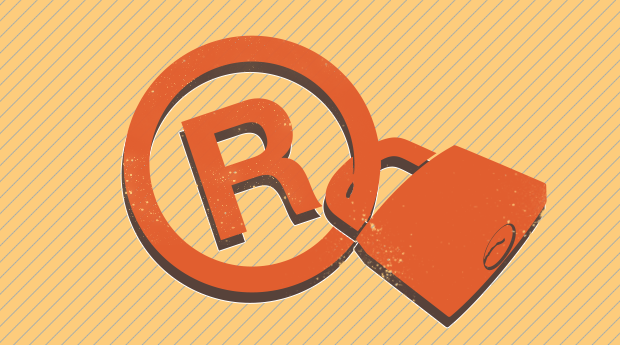Trademarks: Where Does the Liability Lie?

At the end of the day, Google is a for-profit company. Over time, a misconception has somehow arisen that Google’s mission is providing the best search results possible out of the goodness of their heart. Not so; in reality, excellent search results provide two things: 1) a vast and continual source of information about consumers and 2) a built-in base of ad viewers. In fact, despite some diversification, AdWords remains Google’s main source of revenue, with $42.5 billion in 2012 advertising revenues.
With so much money on the table, it comes as no surprise that Google has been subject to significant legal controversy over the years. One of the most hotly contested issues Google faces with the AdWords program is trademark infringement. The pivotal determination for trademark infringement is use of the trademark in commerce. Unfortunately, case law remains ambiguous on the point of if buying and selling trademarks as keywords for advertising constitutes “trademark use.”
Part of the ambiguity derives from Google’s tendency to throw money at the problem, resulting in most cases settling out of court without a judgment, and part to conflicting opinions in different jurisdictions. Without a clear precedent delineating if bidding on trademarks will be considered illegal, Google has attempted to preemptively absolve liability through their Terms of Service Agreement. However, while the Terms may protect Google, marketers may be increasingly exposed to liability for trademark infringement they may not even be aware is occurring.
What Is Google’s Policy on Trademarks?
First, an understanding of what exactly Google allows is necessary. In 2004, Google updated its trademark policy to allow bidding on keywords containing third party trademarks while blocking all trademark use in ad text at the request of the trademark owner. The 2004 policy shift also marked the beginning of Google’s refusal to investigate complaints of trademark misuse with keywords and a move to include trademarked terms as suggestions in the Keyword Tool. However, Google clearly dictated that unauthorized trademark use in ad text would result in deauthorization of the ad. In 2009, Google expanded third party trademark use in ad text to allow for four specific conditions.
- When the trademark is used in a descriptive or generic way; "No, no, no, I’m not talking about Fish Fri. I’m talking about frying fish."
- Where the advertiser sells or clearly facilitates the sale of goods and services corresponding to the trademarked term; "We’re a reseller!"
- Where the advertiser sells replacement parts or compatible products relating to the trademarked term; "Is your LG™ Monitor broken? We have the parts to fix it."
- Where the primary purpose of the landing page of the ad is to provide informative details about goods or services of the corresponding trademark term; "Reviews!"
Finally, Google will not investigate and restrict use of the trademark in display URLs because it claims the presence of trademarked term within a URL may not necessarily constitute trademark use, such as in the case of post-domain paths or subdomains. The URL issue was further addressed when Google updated policies requiring that display URLs match the domain of the destination URL, preventing misdirection by using trademarked URLs. Google advises trademark owners to contact the advertiser directly regarding any concerns about display URLs.
How Claims Are Brought
The vast majority of claims for trademark infringement through AdWords are brought under the Lanham Act with the doctrine of direct confusion. Put simply, trademark owners allege that unauthorized advertisers were trying to confuse consumers into thinking the 3rd party is the source of the trademarked goods or services.
For a claim under the Lanham Act to be successful, the trademark must be “used in commerce.” It is important to note that courts have been split on whether or not bidding on keywords constitutes a use or not, so claims may only be brought in some jurisdictions.
In 2008-2009, many claims were allowed on the basis that if a use in commerce did occur, there was also probably a likelihood of confusion on the part of the consumer. Some courts found a likelihood of confusion even if users did not see the trademark material on the landing page, and the trademark was only used as a keyword to trigger the 3rd party ad being displayed. In legal terms, summary judgment on behalf of the Defendant was denied due to a finding of material fact as to if a likelihood of confusion existed in ad copy or landing pages.
Because the courts are leaning toward allowing claims to proceed, simply bidding on a 3rd party’s trademark can be a risky prospect. Even without the trademark appearing in ad text or on the landing page, bidding on trademarked terms could at least invite a lawsuit that could proceed through discovery and to trial on the likelihood of confusion issue.
What Should We Do?
Bidding on trademarks is a risky proposition. It's important to know that U.S. internet law differs significantly from Europe, China, and other countries. What may be perfectly acceptable in the U.S. could result in legal action elsewhere. In the U.S., while it is still unlikely that bidding on trademarked terms alone will result in a judgment against a 3rd party trademark infringer, it may still result in pricey legal fees. Including further use of the trademark in ad text or landing page copy exacerbates the possibility of liability. Although Google has provisioned for trademark use in its Terms of Service, advertisers should not be confused or believe that adhering to the Terms of Service will protect them from trademark infringement. The only entity protected by Google’s Terms of Service is Google, not any advertiser or 3rd party.

Comments
Add A Comment